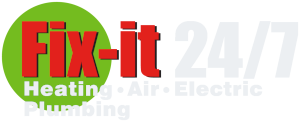Older homes in Denver often hide a range of electrical wiring issues that can pose safety risks and affect the home’s functionality. Understanding these problems is vital for homeowners to maintain a safe living environment. As homes age, electrical systems do too, and what once met the code may no longer be safe or efficient.
Outdated Electrical Panels
Fuse Boxes
Many older Denver homes still rely on fuse boxes instead of modern circuit breaker panels. Fuse boxes were standard until the mid-20th century but are now considered outdated for several reasons. Fuses require manual replacement every time they blow, which can be inconvenient and potentially hazardous if the wrong type of fuse is installed. Additionally, fuse boxes may not comfortably handle the electrical load demanded by today’s appliances and gadgets, increasing the risk of electrical fires.
Insufficient Amperage
Older electrical panels often provide insufficient amperage for today’s needs. Many older homes were built with 60-amp or 100-amp panels. Modern homes, however, usually require at least 200 amps to safely support all electrical devices and systems. If your home’s electrical panel doesn’t offer enough amperage, you may notice frequent circuit breaker trips or dimming lights when using multiple appliances. Upgrading your electrical panel is essential for both safety and to meet current electrical demands.
Aluminum Wiring Issues
Risk of Overheating
Aluminum wiring was used in homes during the 1960s and 1970s as a cheaper alternative to copper. However, aluminum wiring poses several risks, including the potential for overheating. Aluminum expands and contracts more than copper, creating a risk of loose connections and overheating. Loose connections can result in hot spots that may lead to electrical fires. If your home has aluminum wiring, it’s crucial to have it inspected and potentially replaced by our professionals.
Connector Problems
Another major issue with aluminum wiring is connector problems. Aluminum wires require special connectors compatible with their unique properties. Traditional connectors designed for copper wiring can cause faults and increase fire risks when used with aluminum wiring. Faulty connections could lead to arcs, which are intense sparks that may ignite surrounding materials. To prevent these issues, proper connectors must be used, and professional inspections are critical to ensure the safety of your electrical system.
Worn-Out Insulation
Cracked or Brittle Insulation
As electrical insulation ages, it can become cracked or brittle. This deterioration exposes the wire underneath, creating potential hazards like short circuits and electrical fires. Over time, insulation materials break down due to environmental factors such as temperature changes and general wear and tear. Regularly inspecting your home’s wiring for cracked or brittle insulation can prevent these dangers.
Exposure to Moisture and Rodents
Moisture and rodents are common culprits in the degradation of electrical insulation. Moisture can seep into walls and affect the wiring, causing the insulation to deteriorate more rapidly. Rodents often chew on electrical wires, stripping away the protective insulation and leaving the wires exposed. These exposures can lead to serious electrical hazards, including the risk of fire and circuit failure. Taking preventive measures to control moisture and pests is crucial for maintaining your home’s electrical safety.
Lack of Grounding
Two-Prong Outlets
Many older homes in Denver still have two-prong outlets that lack proper grounding. These outlets were standard before grounding became a common safety measure in electrical systems. Grounding provides a safe path for electrical current in case of a fault, reducing the risk of electrical shock or fire. Upgrading to three-prong outlets with proper grounding ensures a higher level of safety for your home’s electrical system.
Electrical Shock Risks
The absence of proper grounding significantly increases the risk of electrical shocks. Without grounding, faulty electrical devices can become dangerous to touch. Even minor electrical faults can lead to serious injuries. Ensuring that all outlets and electrical systems in your home are properly grounded is essential for the safety of your family and home.
Conclusion
Addressing electrical wiring issues in older Denver homes is crucial for ensuring safety and efficiency. Outdated electrical panels, aluminum wiring, worn-out insulation, and lack of grounding can all pose significant risks. Regular inspections and timely upgrades can prevent many common hazards associated with aging electrical systems.
If you are experiencing any of these issues, it’s important to seek professional assistance. Our professionals at Fix It 24/7 are here to help with all your electrical needs. We provide thorough inspections and necessary upgrades to keep your home safe. For dependable electrical wiring services in Denver, contact us today.

